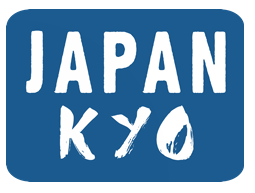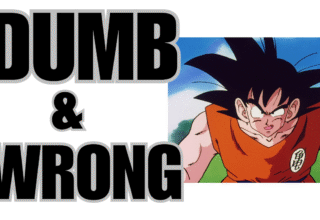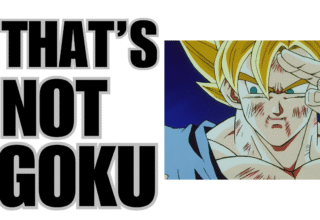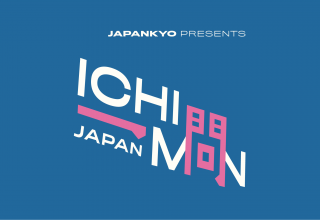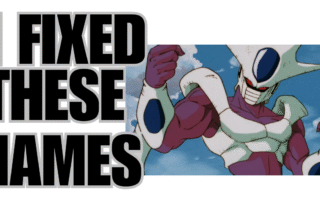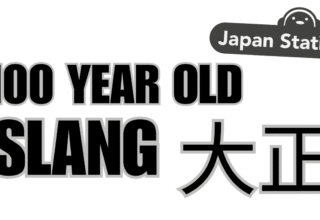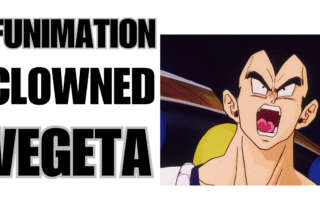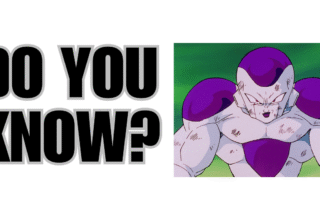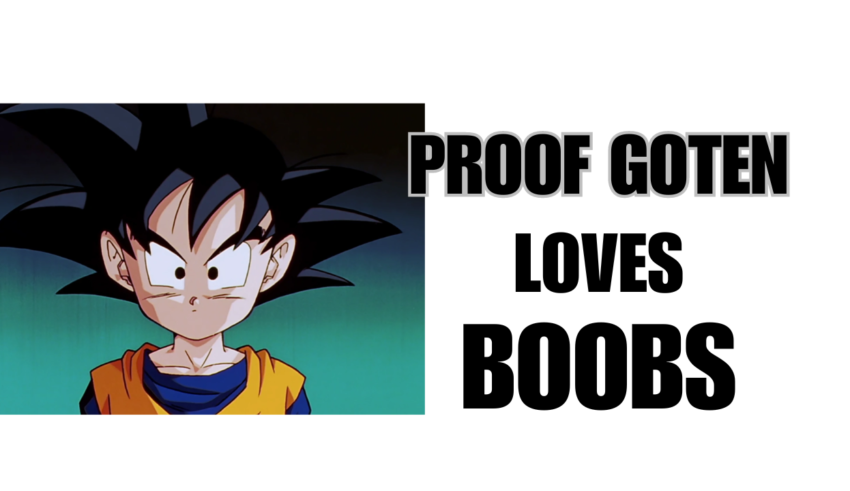
In “We Gotta Power” by Kageyama Hironobu, the second opening song of Dragon Ball Z, there is an infamous lyric. It goes “ippai oppai, boku genki.” Many people would translate this as something like “There’s a lot of breasts and I feel fine.” This is in fact one possible translation. However, in this case, it is not an accurate translation. That’s because in this case oppai does not mean boobs/breasts like it usually does. Instead, here oppai refers to breastmilk/breastfeeding. This peculiar lyric is actually a reference to Goten and perhaps Trunks. This is because it is referring to Goten and possibly Trunks having become healthy young boys due in part to having consumed a lot of breastmilk.
Therefore “ippai oppai, boku genki” should be translated as something like “I drank a lot of breastmilk so I’m full of energy.”
Japanese
いっぱいおっぱい僕元気
Romanized Version
ippai oppai, boku genki
Possible Transaltions
I consumed a lot of breastmilk, I’m full of energy, I drank a lot of breastmilk so I’m big & strong, etc.
But what about Maron?
Some people claim that “ippai oppai, boku genki” actually refers to Maron, the daughter of Krillin and Android 18. This is because in the part of the opening sequence where ippai oppai can be heard, Maron appears on screen.
This is an interesting point and there are explanations for why this is the case. However, first let’s look at why the evidence suggests this lyric does not refer to Maron. The most important piece of evidence is that “boku” is a first person pronoun associated with boys. This strongly suggests that the line is referring to/written from the perspective of Goten and perhaps Trunks. Maron would not normally use “boku.” Another thing that backs this up is the next line in the song. It goes “toraburu to asobe, yancha bōi.” This can be translated as “play with trouble, naughty boy.” Yet again, this strongly suggests that this entire part of the song is focusing on Goten and Trunks since they are the two “naughty boys” that take the spotlight in this part of Dragon Ball Z.
So why is Maron being shown during the “ippai oppai” line? Unfortunately, all we can do is speculate since I haven’t been able to find any comments made by Yukinojo Mori (the person who wrote the lyrics for “We Gotta Power”) or anyone who worked on the animation for the opening sequence of “We Gotta Power.” One possible explanation is that “ippai oppai, boku genki” is being used to refer to all of the new child characters who make their debut in this part of Dragon Ball Z. “Boku” in this case should not be interpreted as something only said by boys. It should just be thought of as a neutral first person pronoun. This is something done in songs fairly commonly. There are many examples of songs that use boku even though they are sung by a female singer. One reason for this is simply the amount of syllables. Boku only has two syllables. Meanwhile, watashi, which is the first person pronoun most commonly used by both men and women in Japanese, has three syllables (the technical term in this case would be mora but I’m sticking to syllables to keep things simple). There are many situations in songs where a lyricists may need to use a pronoun with only two syllables so they can’t use watashi or the more feminine sounding variation atashi despite the singer singing the song being female. In the case of “ippai oppai, boku genki” switching boku for watashi would ruin the syllable count and thus throw off the entire song. So perhaps Mori (the songwriter) chose to use boku even though he didn’t intend to exclude Maron.
Another possible explanation is that Mori simply wrote the song based on what he knew about this part of the Dragon Ball Z story and information given to him by those involved witht he production of the anime at Toei. Then the animation team put the opening sequence together based on the song Mori produced. Of course, I cannot say for sure but this seems very likely since producing the opening without a song seems illogical. So assuming this is the case, Mori may have just written this part of the song as a reference to Goten and Trunks. Then when the animation team began working on the song, they decided to throw in Maron there too since she is also one of the young characters who not too long ago were drinking breastmilk. Given the fact that Maron does not fight, this seems like a logical choice. Goten and Trunks have other parts in the opening they can shine. Meanwhile, Maron doesn’t. Plus she’s a very minor character so there isn’t much of a reason to give her a lot of screen time.
Also, I’d like to point out that right after Krillin, 18, and Maron are shown, King Kai, Goku and Bubbles sare shown. They have nothing to do with this part of the song. So one could also make the argument that those who made the opening weren’t overly concerned with matching what was goin on visually with the lyrics. Thus the fact that Maron is on screen when “ippai oppai” is said shouldn’t be taken to mean that “ippai oppai” was ever meant to refer to Maron.
But what about Trunks?
Earlier I noted how the “ippai oppai” line is a reference to Goten and perhaps Trunks. I’d like to elaborate on why I am suggesting this line may only be referring to Goten. Mainly, it comes down to the fact that Goten has a more childish personality than Trunks. “Ippai oppai, boku genki” sounds like something only a very young child would say. Trunks is often trying to seem stronger and more grown up than he is. Meanwhile, Goten is more innocent and knows less about the world. The “ippai oppai, boku genki” line just does not seem like something Trunks would ever say. But it would not be out of character for Goten. Also, in the video I made about this line (below), I state that I don’t think Bulma breastfed Trunks thus it has to be about Goten. I was half joking when I stated this. As far as I know, there is no decisive evidence in the Dragon Ball anime or manga that would tell us whether Bulma did or did not breastfeed Trunks. So feel free to believe what you want on this one.
Mori Yukinojo has the answers
Finally, I’d like to close things out by restating that I have not been able to find any statements by Mori about what he was thinking when he wrote this lyric. Mori is known for writing very interesting lyrics that can be quite tricky to translate. Mori also wrote “Cha La Head Cha La,” another peculiar song with its own difficult to translate lyrics. However, in the case of “ippai oppai,” it’s totally possible he wrote this as a double entendre on purpose. In other words, this could also be a sly reference to Master Roshi and/or the many voluptuous female characters of the Dragon Ball franchise. Also even if it wasn’t a willful reference to Master Roshi, Mori may have simply wanted to throw in something silly that children would notice and want to repeat. And of course, Mori also needed something that would rhyme with “ramen roppai, haha nonki” This is a line in the second chorus. This translates to “six bowls of ramen, mom doesn’t mind.” This is a reference to how saiyans eat a lot. However, the important part for this analysis is that “oppai” rhymes with “roppai” and “genki” rhymes with “nonki.” Whether Mori came up with “ippai oppai” first or “ramen roppai” first, we may never know, but the fact is he needed these two lines to rhyme and I love the creative way in which he pulled this off.
Translation is not an exact science. In fact, in many ways it’s an art form. There’s a lot of room for interpretation and this is especially the case with song lyrics. I cannot say for sure that “ippai oppai, boku genki” refers only to Goten or only to Goten and Trunks but not Maron. The reality is, I don’t know what Mori’s intent was when he wrote this line. However, we do have evidence we can look to in order to reach a conclusion. Given this evidence, I stand by my claim that this part of the song refers to Goten and maybe Trunks. I think the animators threw Maron into this part of the opening because it seemed like an appropriate place. Ultimately, though, I think the most important thing to keep in mind is that even though “ippai oppai” could be a double entendre, “oppai” in this case should be seen as a reference to breastmilk/breastfeeding rather than a direct reference to breasts/boobs.
For even more on “ippai oppai,” check out the video I made below.
